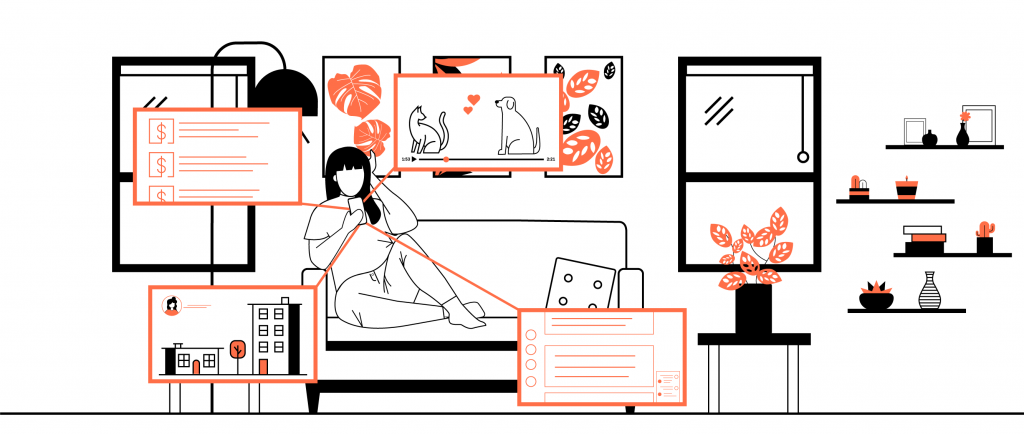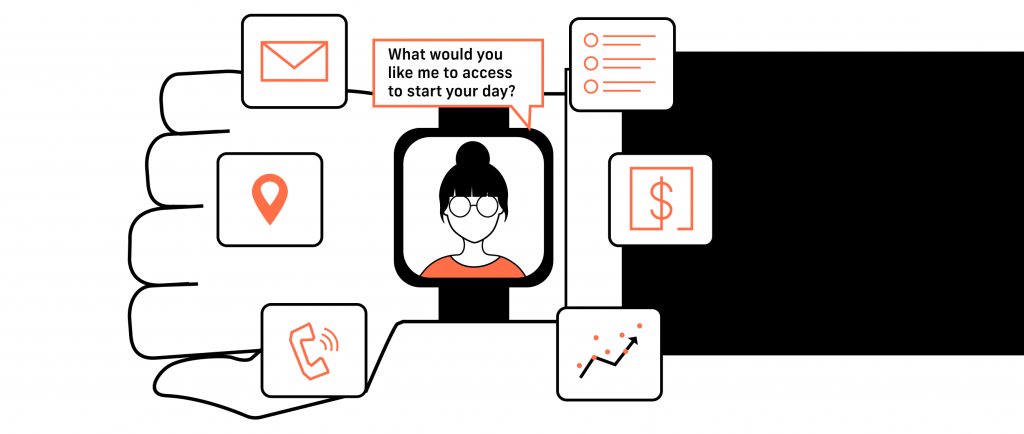On our second week of looking into the future, we want to highlight the internet. Yes, this is broad, but we honestly couldn’t handle most of life, and especially our work life, without it. So, instead of doing a variety of searches on the internet looking at trends, putting on my creative hat and experimenting with “how far is too far?”, we asked Larry, our VP of Broadband and Video. You could say after spending a large amount of his career in the internet world that he has a good sense of how things could change, with maybe some far out ideas as well.
So, just like last week, let’s dive into another possibly grammatically incorrect way of presenting a thought dump on what the internet could look like in 20 years, brought to you by Larry.

Seamless Internet Integration into Daily Life
By 2040 in the U.S. we won’t even be calling it WiFi or the internet. It will be such a part of our everyday lives that we won’t even think about it. Or, perhaps, all we will HAVE to do is think about it as our wearables or embedded devices will literally be capable of reading our mind. In that respect, they’ll be our virtual personal assistant (a “digital valet” or “concierge” or “butler”).
Beware, however! Who wants an “assistant” (virtual or actual) to know EVERYTHING you are thinking all the time? And who else is privy to your thoughts??? lol
Like the air we breathe, no one will know how fast or how much you are consuming. Data caps, and “what speed?” questions will be a thing of the past.
Internet Privacy and Security Challenges
The ubiquity of big data, combined with greater transparency will continue to raise challenges of security and privacy. Increased regulation of the internet will mandate the use of enhanced biometric identification (possibly DNA) as well as much more transparent and simple to understand (and to enable) privacy protections.
Immersive Internet Experiences and Connectivity
Robust wireless data networks as well as wearables will enable VR (virtual reality) to be a fully immersive experience placing you:
– seamlessly into a collaborative work environment
– in the shoes of Tom Brady live in the pocket as he throws another TD (yes, he’ll still be an NFL QB in 2040, lol!)
– Go back in time to 1776 in Independence Hall to watch the Declaration of Independence signing (or any other historical event)
– A fly on the wall in Steve Jobs’ garage in Los Altos, California during the 70s (Think about the movie “Ready Player One” where Wade is able to look back at James Holliday’s life to figure out easter eggs hidden in the VR gaming world)
– in a consultation with your healthcare provider
– etc., etc.

Internet Connectivity in Developing Nations
Searching for something to stream will be a thing of the past (is it on HBOMax? Netflix? Disney+? who cares!).
Driving across your state to a different city? Leave it to me. Watch a feature film as the vehicle of your choice takes you there. Going 1000 miles? No problem. Tuck yourself in, get a good night’s sleep, the wireless network will enable your autonomous vehicle to get you there safely so that you wake up at your fav brekky place in time to brush your teeth, shower and start your day.
Anyone will be able to write or speak in their native language and be understood and understand others speaking in their native language.
The name of the person across the room will be “floating” above their head along with other, configurable current information about them.
In developing countries, connectivity will have allowed significant investment and commercial growth within those areas, creating a new generation of empowered workers and business opportunities.
So I have to admit, these ideas are all pretty incredible and gets me very excited to see how the future of technology, like the internet, will continue to grow over the next 20 years. Stay tuned for next week as we take a bit of a deeper dive into AI and VR!


